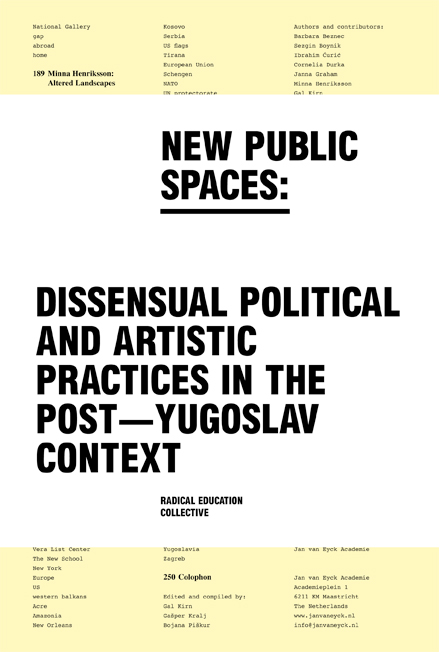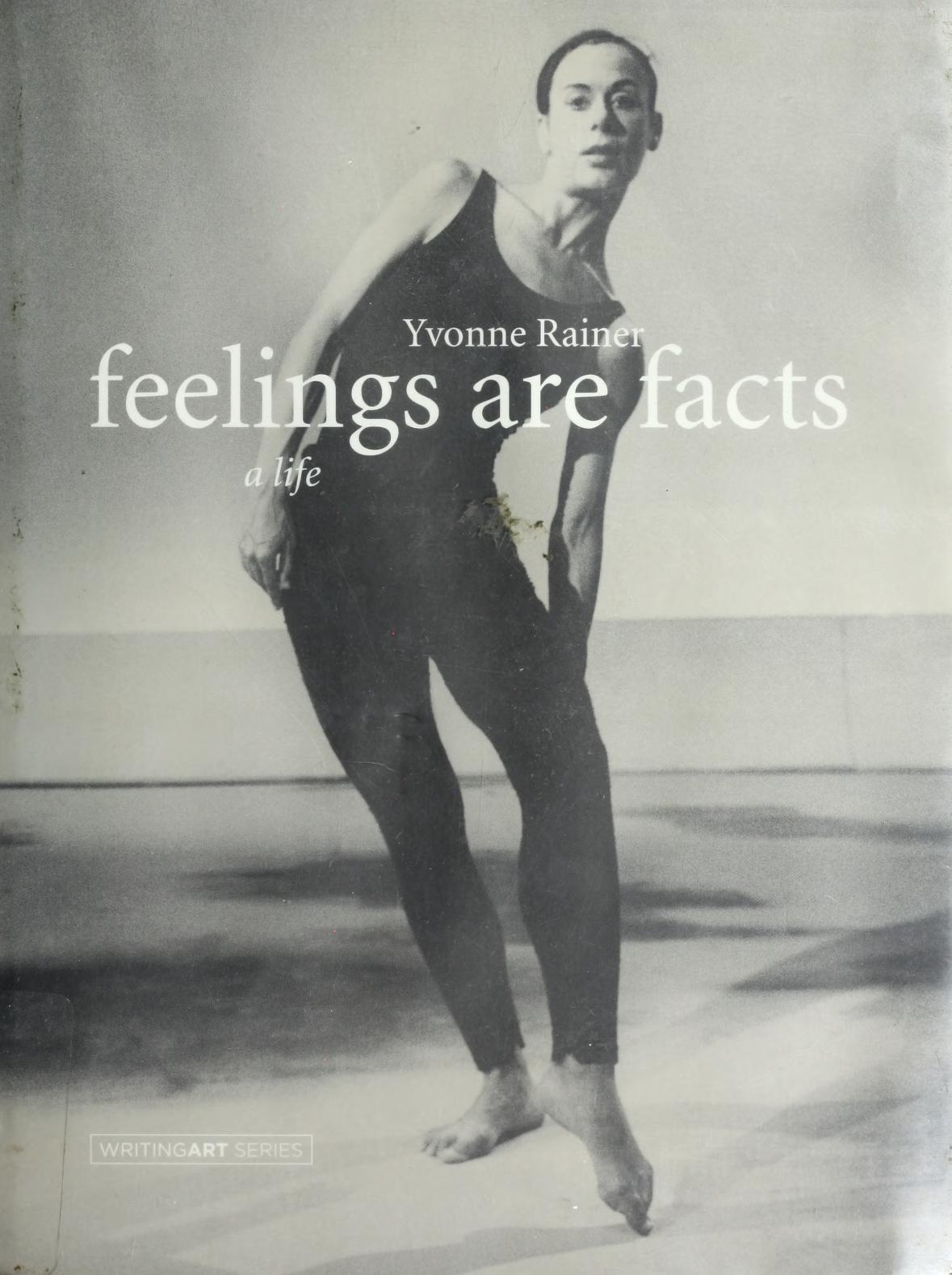Radical Education Collective (eds.): New Public Spaces: Dissensual Political and Artistic Practices in the Post-Yugoslav Context (2009)
Filed under book | Tags: · art, politics, public space, yugoslavia

“This reader draws its inspiration from encounters and conversations with activists, artists, critical thinkers, curators, militant researchers and writers from Belgrade, Helsinki, Istanbul, Ljubljana, London, Pristina and Prizren in April and May 2008 at the social centre ROG and the AKC Metelkova mesto in Ljubljana. Those encounters challenged not only the distinction between ‘serious’ discussions and ‘informal’ debates – that instantly reproduce linear time and hierarchical space – but also our mutual ability to listen, talk and share experiences (instead of consume information). Contributions were subsequently elaborated into the reader, which consists of two parts. In the first part, engaged collectives reflect on the organisation of different political issues: from anti-capitalist and student struggles, to immigrant workers and the re-appropriation of public spaces in the region. The second part focuses on specific art collectives from Kosovo and Ljubljana, which are occupied with the question of space: why was space so important when rethinking the relation between art and politics, and also what can one do with the space? Here, a set of political practices enabled art collective to undermine the presupposed liberal border between public and private. The reader concludes with a presentation of some art projects that intervened and articulated spatial and visual transformations in the post-Yugoslav context.”
Edited and compiled by Gal Kirn, Gašper Kralj, and Bojana Piškur
Publisher Jan van Eyck Academie, Maastricht, and Modern Galerija, Ljubljana, 2009
ISBN 9789072076878, 9072076877
194 pages
In Terms of Performance (2016–)
Filed under book | Tags: · drama, glossary, performance, performance art, theatre

A keywords anthology designed to provoke discovery across artistic disciplines.
“In Terms of Performance is designed to generate shared literacies for how we understand the goals, skills, and artistic traditions of experimental interdisciplinary work. Over the past few years we have gathered essays and interviews from key artists, curators, presenters, and scholars whose work reflects on relations among visual art, theatrical, choreographic, and performance art practices. To seed the conversation, we created a list of keywords: common yet contested terms in our current context, when museums are incorporating ever more time-based art forms, theaters are commissioning visual art for their stages, and symposiums try to make sense of how this cross-pollination changes the nature of curating, collecting, producing, authoring, documenting, and commissioning. Some of these keywords are older terms that have been resuscitated and redefined; others have made an appearance only recently. Our goal was not to produce singular definitions nor to commission encyclopedic entries but to share perspectives from distinct locations.”
Terms: Act, Amateur, Character, Choreography, Collecting, Composition, Curating, Documentation, Duration, Ephemerality, Experience Economy, Improvisation, Installation, Live, Media, Narrative, Participation, Performativity, Postdramatic, Poststudio, Prop, Reenactment, Relational, Score, Site, Spectator, Theatricality, Virtuosity.
Edited by Shannon Jackson and Paula Marincola
Publisher Arts Research Center at University of California, Berkeley, and The Pew Center for Arts & Heritage, Philadelphia, 2016
Yvonne Rainer: Feelings Are Facts: A Life (2006)
Filed under book | Tags: · biography, choreography, dance, film, memoir

“In this memoir, dancer, choreographer, and filmmaker Yvonne Rainer traces her personal and artistic coming of age. Feelings Are Facts (the title comes from a dictum by Rainer’s one-time psychotherapist) uses diary entries, letters, program notes, excerpts from film scripts, snapshots, and film-frame enlargements to present a vivid portrait of an extraordinary artist and woman in postwar America.
Rainer tells of a California childhood in which she was farmed out by her parents to foster families and orphanages, of sexual and intellectual initiations in San Francisco and Berkeley, and of artistic discoveries and accomplishments in the New York City dance world. Rainer studied with Martha Graham and Merce Cunningham in the late 1950s and early 1960s, cofounded the Judson Dance Theater in 1962, hobnobbed with New York artists including Robert Rauschenberg, Robert Morris (her lover and partner for several years), and Yoko Ono, and became involved with feminist and antiwar causes in the 1970s and 1980s. Rainer writes about how she constructed her dances—including The Mind Is a Muscle and its famous section, Trio A, as well as the recent After Many a Summer Dies the Swan—and about turning from dance to film and back to dance. And she writes about meeting her longtime partner Martha Gever and discovering the pleasures of domestic life.”
Publisher MIT Press, 2006
Writing Art series
ISBN 9780262182515, 0262182513
xvi+473 pages
Reviews: John Rockwell (NYT, 2006), Ian White (Afterall, 2007), Daniel Ross (Screening the Past, 2007), Deborah Jowitt (Dance Research, 2008).
PDF (62 MB, no OCR)
Comment (0)
